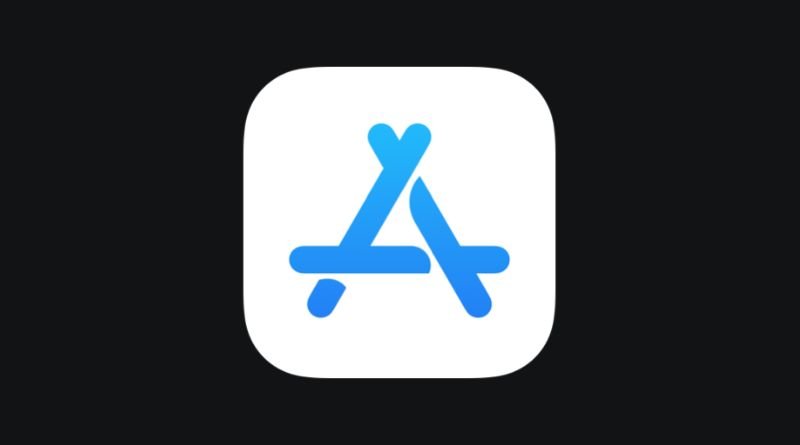Exploring the Apple Apps Store: A Comprehensive Guide
In today’s digital age, mobile applications have become integral to our daily lives. From enhancing productivity to providing entertainment, apps cater to nearly every need. At the heart of this app revolution is the Apple App Store, a marketplace that houses millions of applications for iOS devices. In this article, we will delve into the intricacies of the Apple App Store, its features, and the impact it has on users and developers alike.
Understanding the Apple App Store
The Apple App Store is a digital distribution platform developed and maintained by Apple Inc. It was launched in July 2008 and has since grown into one of the largest and most influential app marketplaces in the world. The store provides a platform for developers to publish their apps and for users to download, purchase, and update applications on their Apple devices, including iPhones, iPads, and Macs.
Key Features of the Apple App Store
- User-Friendly Interface: The App Store is designed with simplicity in mind. Its intuitive interface allows users to easily browse, search, and download applications. Users can categorize apps by various criteria, including popularity, relevance, and user ratings.
- Extensive App Categories: The App Store hosts a vast array of applications across multiple categories, such as games, productivity, education, health and fitness, entertainment, and more. This wide range ensures that users can find apps that cater to their specific interests and needs.
- Curated Content: Apple emphasizes quality and relevance in the apps available on its platform. The App Store employs a team of experts who curate content, ensuring that featured apps are of high quality and provide value to users. Regular updates and editorial selections help users discover new and noteworthy apps.
- In-App Purchases and Subscriptions: Many apps offer additional features or content through in-app purchases or subscriptions. This model allows users to enjoy a basic version of an app for free while providing developers with a revenue stream.
- Regular Updates and Security: Apple places a strong emphasis on security and privacy. The App Store ensures that apps go through a rigorous review process before they are made available to users. Regular updates help maintain the performance and security of applications.
- User Reviews and Ratings: Users can leave reviews and ratings for apps, providing valuable feedback for both developers and potential users. This transparency helps users make informed decisions when choosing which apps to download.
The Benefits of Using the Apple App Store
- Quality Assurance: The App Store’s stringent review process ensures that users download high-quality apps that adhere to Apple’s standards. This reduces the likelihood of malware or poorly designed applications.
- Seamless Integration: Apps downloaded from the App Store are optimized for the Apple ecosystem, providing a seamless experience across devices. Features such as Handoff and Continuity allow users to switch between devices effortlessly.
- Updates and Support: Developers can easily push updates to their apps through the App Store, ensuring that users always have access to the latest features and security improvements. Additionally, Apple provides support for both users and developers through various channels.
- Community and Resources for Developers: The App Store offers extensive resources for developers, including documentation, forums, and promotional opportunities. Developers can engage with a community of peers and access tools to help them succeed.
- Global Reach: The App Store allows developers to reach a global audience. With millions of users worldwide, developers have the opportunity to expand their market reach significantly.
Challenges Faced by the Apple App Store
Despite its many benefits, the Apple App Store is not without its challenges. Some of these include:
- Approval Process: The app approval process can be lengthy and complex. Developers may face delays or rejections if their apps do not meet Apple’s strict guidelines.
- Competition: With millions of apps available, standing out in the App Store can be challenging for developers. Effective marketing and unique features are essential for attracting users.
- Revenue Sharing: Apple takes a commission on app sales and in-app purchases, which can be a point of contention for developers. While this revenue sharing supports the App Store’s infrastructure, it can impact the profitability of smaller developers.
- Privacy Concerns: While Apple emphasizes user privacy, ongoing discussions around data collection and usage in apps persist. Developers must navigate these concerns while ensuring compliance with regulations.
The Future of the Apple App Store
The Apple App Store continues to evolve, adapting to changes in technology and user behavior. Here are some trends and potential developments that could shape its future:
- Augmented Reality (AR) and Virtual Reality (VR): As AR and VR technologies advance, the App Store may see a rise in applications that utilize these features. Developers are already exploring immersive experiences in gaming, education, and retail.
- Increased Focus on Privacy: With growing concerns over data privacy, Apple is likely to continue prioritizing user privacy in its App Store policies. Developers may need to be transparent about data usage and implement robust security measures.
- AI Integration: The integration of artificial intelligence into apps is becoming increasingly prevalent. Developers may harness AI to enhance user experiences, personalize content, and streamline app functionalities.
- New Payment Models: As the digital marketplace evolves, alternative payment models may emerge. Developers and Apple may explore innovative approaches to monetization that align with user expectations and preferences.
- Emphasis on Subscription Models: Subscription-based models are gaining traction in various app categories. Developers may focus on providing ongoing value to users through continuous content updates and feature enhancements.
FAQs
1. What types of apps are available on the Apple App Store?
The Apple App Store offers a wide variety of apps across multiple categories, including games, productivity, education, health and fitness, entertainment, and more. Users can browse or search for specific apps to find what they need.
2. How does the app approval process work?
When developers submit an app to the App Store, it undergoes a rigorous review process by Apple. This process checks for compliance with Apple’s guidelines, ensuring quality and security before the app becomes available to users.
3. Are all apps on the Apple App Store free?
No, the App Store includes both free and paid applications. Many free apps offer in-app purchases or subscriptions for additional features or content. Users can choose based on their preferences and budget.
4. Can developers make money from their apps?
Yes, developers can earn revenue through app sales, in-app purchases, and subscriptions. However, Apple takes a commission on these transactions, which can impact developers’ overall earnings.
5. How can I report an issue with an app?
Users can report issues with an app directly through the App Store by navigating to the app’s page and selecting the “Report a Problem” option. This allows users to provide feedback or flag inappropriate content.
6. What measures does Apple take to ensure user privacy?
Apple is committed to user privacy and employs various measures to protect personal data. The App Store’s guidelines require developers to be transparent about data collection and usage practices, and Apple implements privacy features in its devices and operating systems.
Conclusion
The Apple App Store remains a pivotal platform in the app economy, serving as a bridge between users and developers. Its commitment to quality, security, and user experience has solidified its reputation as a trusted marketplace for mobile applications. As technology continues to advance, the App Store is likely to evolve, offering new opportunities for innovation and engagement. Whether you are a user looking for the next great app or a developer seeking to reach a global audience, the Apple App Store provides a robust ecosystem that meets a wide range of needs.









